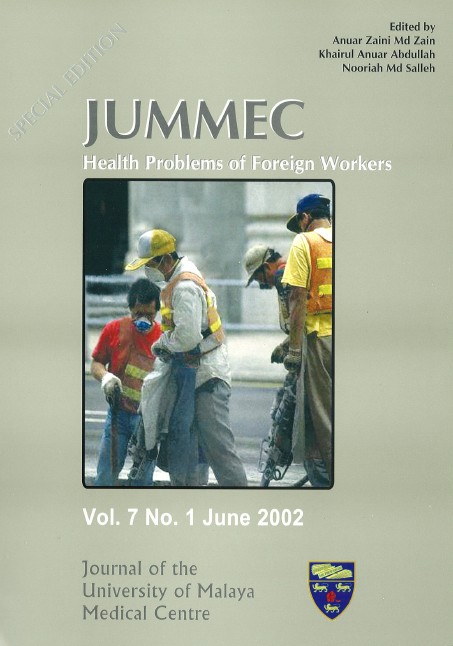Parasitic Infection Among Foreign Workers: Serological Findings
Abstract
We describe the results of serology for parasitic infection of 698 foreign workers. The 698 foreign workers participated included 115 Indonesians, 387 Bangladeshis, 101 Burmese, 81 Pakistanis, 6 Indians, 3 Thais, 3 Filipinoes and 2 others. Blood samples were taken from these workers and eight tests (Amoebiasis, Echinococcosis, Filariasis (bm and wb), Leishmaniasis, Malaria, Schistosomiasis and Trypanosomiasis) were performed on serum separated from the blood. Among the 698 sera tested, 38.1% were found to be positive for at least one parasitic infection. The most common antibody detected in the positive sera was antibody for amoebiasis (28.1%), followed by malaria (26.9%), echinococcosis (18.1%) and schistosomiasis (11.6%). Other tests showed a low percentage of infection with leshmaniasis (6.5%), filariasis (Brugia malayi (3%) and Wuchereria bancrofti (1%)) and trypanosomiasis (1%).
Downloads
Downloads
Published
Issue
Section
License
All authors agree that the article, if editorially accepted for publication, shall be licensed under the Creative Commons Attribution License 4.0 to allow others to freely access, copy and use research provided the author is correctly attributed, unless otherwise stated. All articles are available online without charge or other barriers to access. However, anyone wishing to reproduce large quantities of an article (250+) should inform the publisher. Any opinion expressed in the articles are those of the authors and do not reflect that of the University of Malaya, 50603 Kuala Lumpur, Malaysia.


